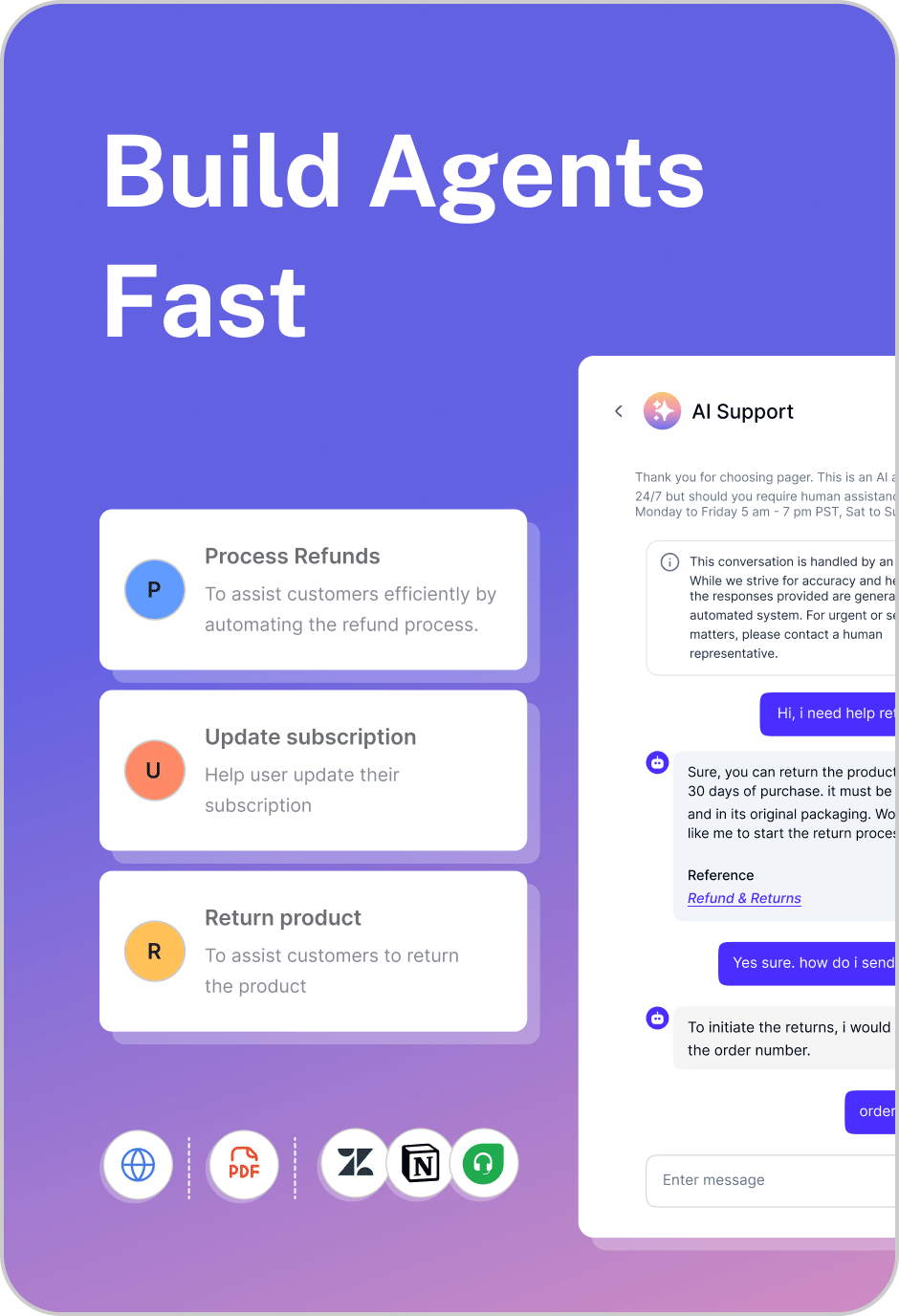
Connect with Apps, Capture Leads, and Go Live
Once the AI Agent is ready, deploy it across your website, WhatsApp, Messenger, Instagram, or even Slack for internal use. With pagergpt, you can add custom GPTs to your website with branded widgets and advanced settings.
Build lead capture forms to collect:
Visitor emails
Product preferences
Size or budget ranges
Setup Live Human Handover
If the Agent encounters emotional language, complex complaints, or refund disputes, pagergpt triggers a seamless customer query resolution handoff via the shared live inbox. This ensures humans can jump in mid-conversation with full context.
With pagergpt, training and deployment is seamless
pagergpt simplifies retail-specific AI deployment by offering tools for training, personalization, integration, and compliance all in one platform.
Features That Power Retail AI Agents in pagergpt
AI Agent Studio - Create tailored agents for different retail segments, configure tone, and map flows like “Order Status → Shipping Policy → Returns.”
Secure Lead Forms - Capture customer info (opted-in) during chat and sync it with CRMs like HubSpot or Shopify ideal for lead qualification Agents.
Smart Product Search Integration - Integrate product catalogs so your AI Agent can respond with real-time inventory, recommendations, or related items.
Omnichannel Support - Deploy across high-traffic channels web, Messenger, WhatsApp using automated customer support.
Escalation Logic - Set triggers to escalate chats to agents based on emotion, ticket value, or complexity using the shared inbox.
Analytics and AI Insights - Use AI insights to track product queries, returns, top-asked questions, and escalation trends helping you optimize campaigns and improve CX.
Pricing Built for Retail Scale
pagergpt offers session-based pricing with unlimited messages, so your AI Agent can scale alongside Black Friday traffic or summer sale demand without paying per message.
Explore plan tiers and features on the pagergpt pricing page.






